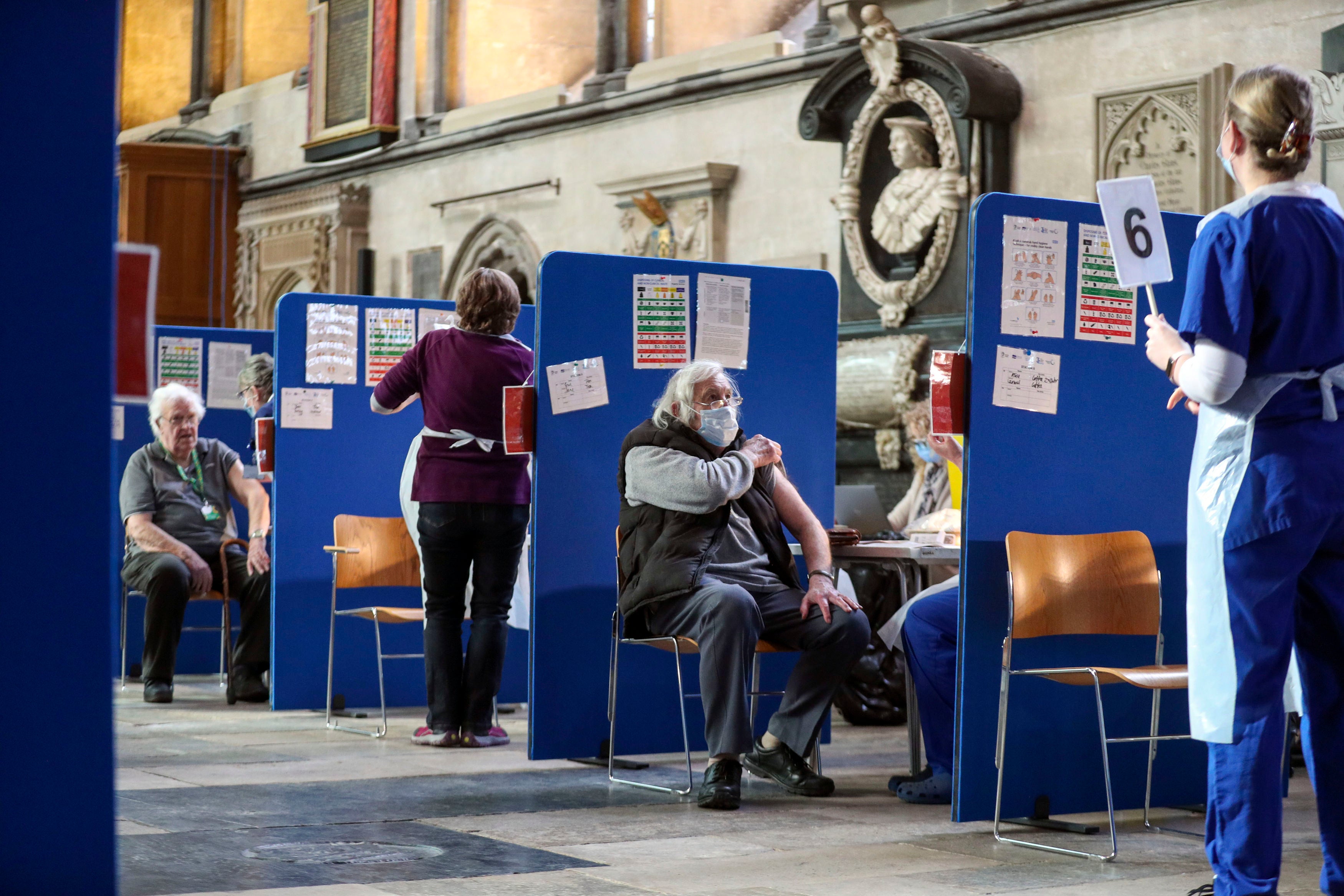Vaccine passports ‘not inevitable’, says former chief scientific adviser
‘It will be much easier to weigh up pros and cons when we know much more accurately what the effects of the vaccinate are’

Your support helps us to tell the story
From reproductive rights to climate change to Big Tech, The Independent is on the ground when the story is developing. Whether it's investigating the financials of Elon Musk's pro-Trump PAC or producing our latest documentary, 'The A Word', which shines a light on the American women fighting for reproductive rights, we know how important it is to parse out the facts from the messaging.
At such a critical moment in US history, we need reporters on the ground. Your donation allows us to keep sending journalists to speak to both sides of the story.
The Independent is trusted by Americans across the entire political spectrum. And unlike many other quality news outlets, we choose not to lock Americans out of our reporting and analysis with paywalls. We believe quality journalism should be available to everyone, paid for by those who can afford it.
Your support makes all the difference.Vaccine passports for leisure activities are “not inevitable”, a former chief scientific adviser has suggested as the government examines ethical and practical concerns of a possible scheme.
The remarks from Sir Mark Walport came after Boris Johnson provoked a furious reaction from backbench Tories last week by floating the prospect of a pub passports and landlords being able to bar unvaccinated drinkers.
The Cabinet Office minister, Michael Gove, is expected to publish the findings of a review into the use of vaccine passports next month, but ministers have made clear any domestic scheme will not be used until all adults in the UK have been offered a jab.
One option being looked at by Mr Gove is to use existing NHS smartphone apps as a “Covid status certificate”, with a QR code providing a link to details of jabs and tests, alongside a photo of the holder to prevent certificates being shared.
The prime minister has stressed that no decisions have been taken, but told MPs he believed “there is going to be a role” for vaccine passports. He also made clear any such scheme would enable entry for individuals who have antibodies as a result of being infected with and recovering from coronavirus and people with a recent negative test.
Read more:
Speaking to Times Radio, Sir Mark said:“It will be much easier to weigh up pros and cons when we know much more accurately what the effects of the vaccinate are.”
He added: “We don’t know how long vaccination lasts but it’s likely to be a decent period of time. So I think these are questions that the policymakers are struggling with — they are difficult questions actually.”
The communities secretary Robert Jenrick insisted last week that any vaccine certification would not be introduced until after the “whole country has been vaccinated”, but warned that schemes for international travel was “not entirely within our control”.
“We’re looking into the practical issues, the ethical concerns and we’re being guided by the best medical and scientific opinion and we will be bringing forward the outcome of that work in the coming weeks,” he added.
“We don’t have an immediate plan to take action. Our focus at the moment is the vaccine rollout – that has to be our priority.”
As the government eased restrictions on socialising outside across in England on Monday, professor Walport also said people would be able to hug again when Covid-19 case numbers are “really, really low”.
“At the end of the day the virus gets from one person to another by proximity and proximity can happen outside as well,” he said.
Quizzed on when people could hug again, Sir Mark went on: “I think that when the evidence shows that the case number is really really, really low indeed, that’s the point, so some degree of caution makes sense.
“As I say, it’s significantly lower than we’ve got at the moment, you know 5,000 cases a day is roughly where we were at the end of September, and certainly if this was on an upward trajectory we would be pretty worried at the sorts of numbers. Somewhere around 0.3 per cent 0.4 per cent of the population across the UK on any day being infected — that’s the prevalence of infection.”
Join our commenting forum
Join thought-provoking conversations, follow other Independent readers and see their replies
Comments